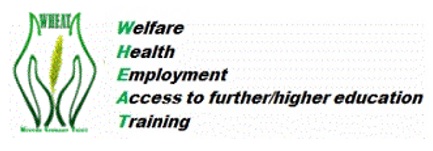Refugee and Migrant Mentoring Service
The Refugee and Migrant Mentoring Service is a major programme of WHEAT MST. Mentoring has enabled a lot of refugees, asylum seekers and migrants during their transition to realise their potentials, to enhance self-confidence and self-esteem; to improve their skills, and therefore to support themselves, their families and their communities. It has enabled them to create awareness of their rights and responsibilities during the process of integration into the host society.
The Mentoring Process
- Recruitment and vetting: following the preparation of mentoring programme, recruitment and vetting of mentors & mentees will be carried out. Both mentors and mentees will go through rigorous vetting and training processes. Both the mentor and mentee groups will be drawn from the pastoralist community. While the mentoring are selected from enlightened pastoralists who have started leading a sedentary or semi nomadic life the mentees will be selected from pastoralist at a lower level of livelihood who are keen and ready to change their lifestyle.
2. A 10-week mentor training: mentors will be provided a ten-week mentor training. The training could take place on Saturday mornings or during evening hours of the working days. However both mentor and mentee groups can decide which day and time is suitable to them. Training sessions will cover benefits of mentoring, the role of the mentor, active listening and communication skills; assertiveness skills, motivation, farming and business skills.
3. Matching and induction of mentors and mentees: half-way into the mentors training, mentors will be matched with their mentees. Both mentor and mentee groups will receive one day induction following the one-to-one matching. After the matching process is finished, a three-way meeting involving the mentor, mentee and the Mentoring Co-ordinator will be arranged to sign mentoring agreement; exchange contact details; and receive guidelines from the Mentoring Co-ordinator.
4. One–to–one mentoring sessions between the mentor and the mentee: Their meetings should take place in a safe and secure place. The mentor and mentee meet for an average of two hours every week within the 6-month period.
5. Monthly group review sessions: The mentor and mentee groups will run their own group review sessions every month where guest speakers from public, private and voluntary sectors are invited to share their experiences. The Mentoring Co-ordinator facilitates the group review sessions. These sessions are helpful to reflect on the progress of the past month and make changes if necessary for the next month. The purpose of the group review sessions is to share mentoring experiences among fellow mentors and mentees so that no mentor or mentee is left behind.
6. Group lunches: Group lunches are arranged to bring all mentors and mentees together to socialise and have fun with friends and families. Former mentors and mentees and other guests will be invited to inspire new group of mentors and mentees.
7. One–to–one support and supervision: the Mentoring Co-ordinator provides support and supervision to both mentors and mentees individually or as pair on a daily basis.
8. Monitoring and evaluation: data will be routinely collected to measure the output and monitor progress during the training, induction, matching, and mentoring sessions. At the end of each six month programme internal evaluation will be carried out to examine strengths and weaknesses of the programme. At the end of the project external evaluator will be hired to assess the mentoring programme. Mentors, Mentees, the Mentoring Co-ordinator and other stakeholders will be actively involved in the process.
9. Graduation and certificate award ceremonies: Mentors and mentees will celebrate the success of their relationships at the end the six month programme.
Views: 1302
